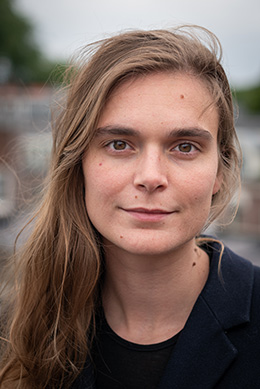Nina de Groot is a PhD candidate at the department of philosophy. Her PhD project, entitled ‘The Shared Self: Genomic Data Between Bioethics, Data Ethics, and Politics’ is funded by an individual PhD grant of the Dutch Research Council (NWO). Her interdisciplinary research focuses on the intersection between data ethics, bio-ethics, privacy studies, and governance. A central topic in her research is law enforcement use of commercial DNA data and its ethical, legal, and social-political implications. Her work is published in multiple (inter)national journals, such as Big Data & Society, Journal of Medical Ethics, Digital Society and Nederlands Juristenblad. She also presented her research findings in the public debate, including in Nieuwsuur, NRC, and Met het Oog op Morgen. Before starting her PhD research, she worked as a medical doctor and teacher in Psychiatry at the Amsterdam University Medical Centre.
Nina de Groot
External PhD Candidate, Faculty of Humanities, Moral and Political Philosophy
Personal information
Teaching
University Teaching Qualification (BKO) Certificate
Grants
NWO Grant PhDs in the Humanities 2019: Forensic use of medical biobanks – an ethical analysis of the transforming boundaries of confidentiality
Ancillary activities
No ancillary activities
Ancillary activities are updated daily

Profile
Publications